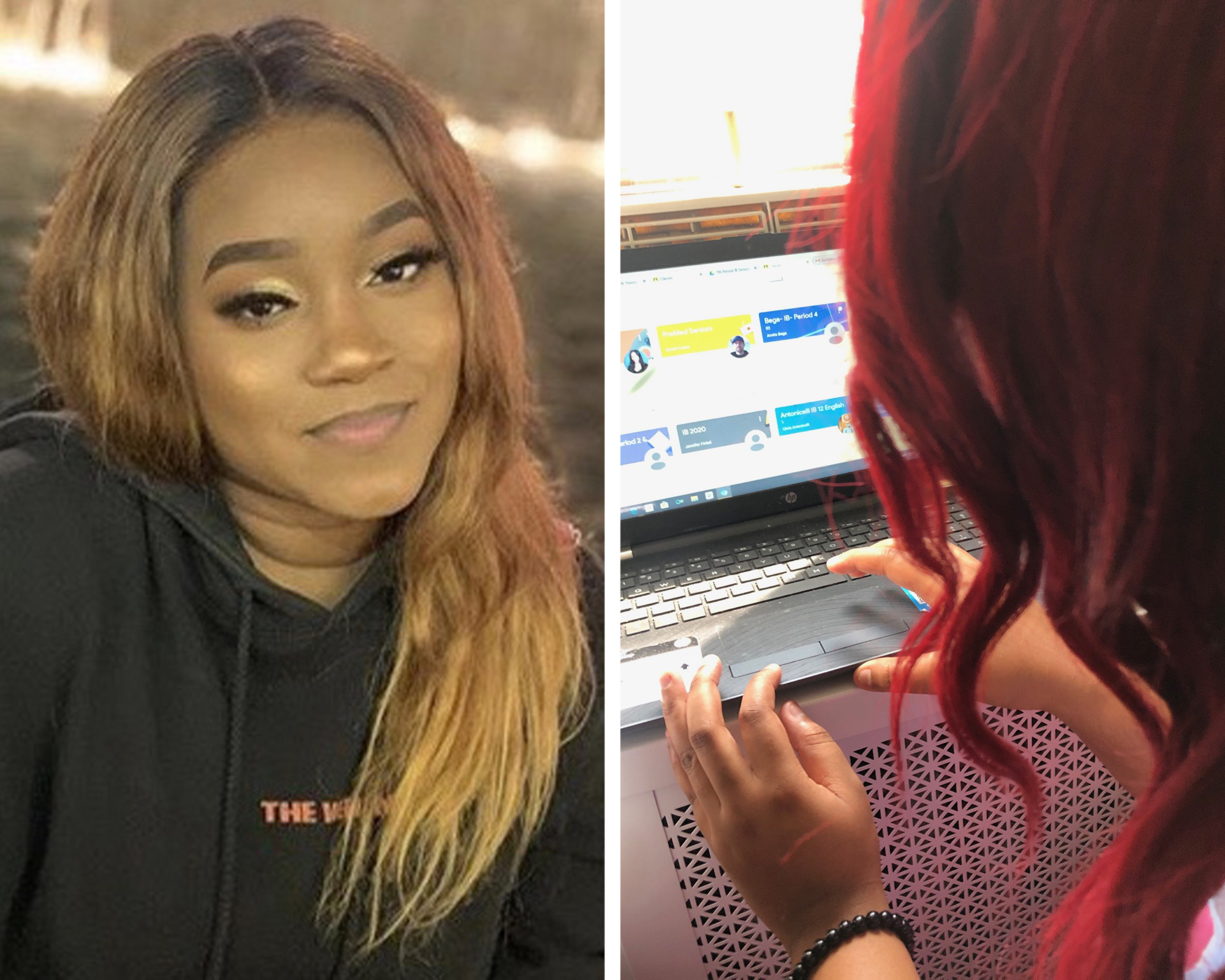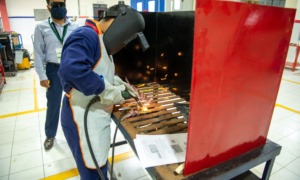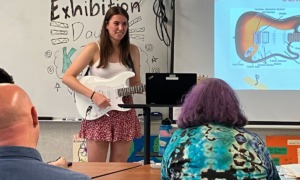
Girls for Gender Equity/Family photo
High school students like Sue Suilla Daley are finishing up the semester online as they shelter in place at home and, in many cases, shoulder extra family responsibility. She is active with Girls for Gender Equity in New York City and serves on its speakers bureau.
Sue Suilla Daley sits in front of her computer in her apartment in Queens. She’s 18 and a senior at John Adams High School. Her 5-year-old godsister, McKenna, jumps around, cuddles with her and generally gets in the way.
Cooped up in the apartment, she’s trying to do her schoolwork, take care of her 82-year-old grandmother and McKenna, even as she worries about her mother, a health aide at Mount Sinai Hospital.
Melisa Cabascango, 17, shares one desktop computer with her four family members in their Brooklyn apartment.
“It’s difficult for us all to be on the online courses” when they take place at the same time, she said in a group online phone call last week. Students get marked absent if they aren’t online when expected.
Whitney Alexis, 25, lives in New Orleans and is seeing a heightened police presence there.
“Police cars are at every other exit waiting to enforce the curfew,” she said in the online call.
All three young women are stepping up to new responsibilities and challenges during the COVID-19 shutdown, but as young people of color they don’t feel what they’re doing is seen and valued.
They spoke in a call convened by the Funders Collaborative on Youth Organizing, a group of funders and youth organizations that stress the importance of youth voice and action as a tool for social change.
Daley is in the international baccalaureate program at John Adams. She’s been accepted at several colleges, but wants guidance on which one to choose. School is closed, however, and she finds it harder to communicate with her high school guidance counselor now that she can’t go talk to him in person.
Her mother gets up at 5 a.m. to get to her job at Mount Sinai.
“One of my biggest fears is her potentially contracting the virus and bringing it home.” Daley said in the call. Her mother wasn’t feeling well earlier this week.
McKenna’s mother is a home health aide working for a family in Manhattan, so McKenna stays with Daley. It’s tiring taking care of a child all day. She doesn’t have time to take care of herself,
“It’s just a very confusing time,” she said.
She mourns the fact that she won’t have a senior prom.
Cabascango said sharing one computer meant kids in her family sometimes had to use a phone to access online courses, which was difficult.
And her mother lost her job.
“I’m basically supporting my mother,” she said. In all the stress, she forgot to submit a class assignment.
Invisible or a problem
To Alexis, in New Orleans, the heightened police presence feels threatening.
“We’re even more policed [than usual]. It’s just a lot,” she said.
She said a lot of young people were employed in the tourist industry in New Orleans and have lost their jobs.
“Bourbon Street is completely shut down,” she said.
The three took part in the online call with others, including Logan Meza representing SOUL Sisters in Miami, which supports and mobilizes young women of color; and Christine Rodriguez of Make the Road New York, which seeks to empower immigrant and working-class communities. Cabascango is also with Make the Road New York.
They discussed how young people of color are seen in the media.
“A lot of young people are criminalized,” Alexis said. They’re either invisible or seen as a problem.
These young women are actively working to solve social problems and they want the world to know that.
Daley is a member of Girls for Gender Equity, a Brooklyn-based nonprofit that works for the physical, psychological, social and economic development of girls and women.
Alexis is with Rethink New Orleans, which supports youth of color in becoming leaders and rethinking the current education system.































